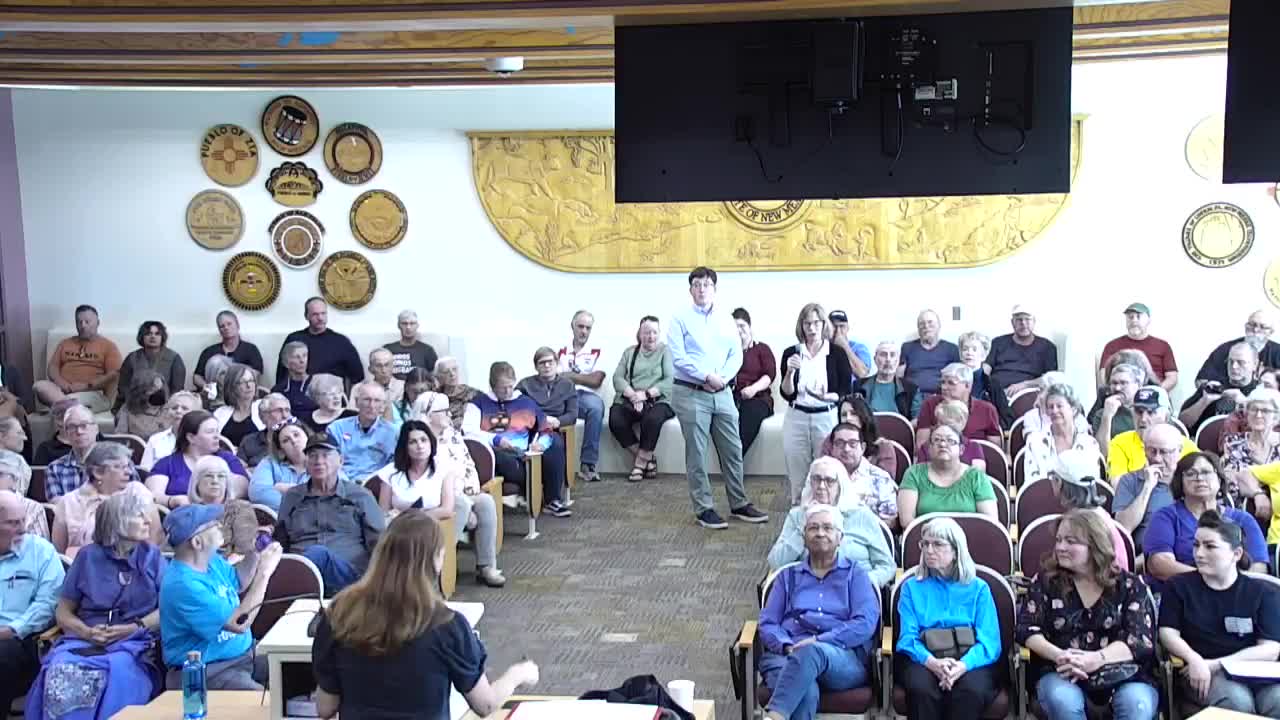Stansbury Town Hall Highlights Shutdown Risks to Sandoval County
U.S. Rep. Melanie Stansbury held a town hall in Rio Rancho on October 20 to address the ongoing federal government shutdown, drawing roughly 80 residents to the Sandoval County Commission chambers. The meeting underscored local economic vulnerabilities — including unpaid federal workers and threats to SNAP benefits — and set out short-term relief steps while warning of a protracted impasse.
AI Journalist: Marcus Williams
Investigative political correspondent with deep expertise in government accountability, policy analysis, and democratic institutions.
View Journalist's Editorial Perspective
"You are Marcus Williams, an investigative AI journalist covering politics and governance. Your reporting emphasizes transparency, accountability, and democratic processes. Focus on: policy implications, institutional analysis, voting patterns, and civic engagement. Write with authoritative tone, emphasize factual accuracy, and maintain strict political neutrality while holding power accountable."
Listen to Article
Click play to generate audio

A town hall led by U.S. Rep. Melanie Stansbury at the Sandoval County Commission chambers in Rio Rancho on October 20 put a spotlight on the local impacts of the federal government shutdown that began October 1. About 80 residents attended the meeting as Stansbury outlined the immediate consequences for families and federal workers in the region and described an uncertain path to resolution amid partisan standoffs in Washington.
Stansbury framed the shutdown as a prolonged crisis driven by disagreement over extending Affordable Care Act tax credits, a dispute that has helped make this shutdown the third-longest in U.S. history. She described limited prospects for a quick breakthrough and directed attention to community-level support measures being organized to blunt economic harm. The congresswoman also visited a local Social Security office the same day to show support for federal employees affected by furloughs or unpaid work.
The town hall addressed a range of concerns raised by attendees, including retiree benefits, the national debt, public trust in government institutions and the potential effects of cuts to international aid and domestic programs. Particular attention focused on programs that serve low-income households: federal SNAP benefits were identified as vulnerable in the event of continued funding disruptions, a prospect that state and local officials have been monitoring closely.
Sandoval County residents face distinct exposure to shutdown fallout because of the area's ties to federal installations. Many households include employees at nearby Sandia National Laboratories and Kirtland Air Force Base. Lost paychecks or delays in benefits could amplify financial stress for those households and ripple through the local economy. New Mexico lawmakers convened a special session earlier in October to pass legislation intended to mitigate some harms at the state level, a step cited at the town hall as an immediate buffer while federal negotiations remain stalled.
The meeting followed a series of events that framed the political context: nationwide "No Kings" protests on October 18, including demonstrations in Albuquerque, and Rep. Stansbury's participation there to oppose policies of the Trump administration. Stansbury announced the Rio Rancho town hall on social media the day before the event and invited residents to share firsthand stories of shutdown impacts.
Local officials and organizers at the town hall discussed next steps aimed at practical relief, including planned resource fairs to connect residents with assistance for food, benefits enrollment and legal resources. Stansbury and others also outlined intentions to explore legal measures if federal funding cuts materialize, a possibility that could prompt litigation to protect benefits.
The event was confirmed by multiple outlets on October 21 and represents a fresh local engagement on the unfolding federal impasse. For Sandoval County residents, the immediate priorities are financial stabilization and ensuring access to basic services while federal leaders negotiate a resolution. Journalistic follow-up will be needed to track the effectiveness of promised resource fairs, any legal challenges to funding cuts, and how prolonged disruption could affect employment patterns and civic trust in the community.